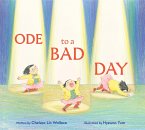All hybrids must die... Ara is an innocent hybrid, she has never hurt anyone. She thought she lived in a world free from prejudice, but everything changes after a violent coup executed by two pure Oderians. They believe that all hybrids must die. Ara and her best friend, Nova, a pure Oderian, must go on the run in an effort to find and join the rebel force rising up against the government. Ara is in over her head, though. She finds out secrets about Nova and her father that will destroy her world even more than it already was. However, she must put aside her differences with Nova so they can pull Ode out of rebellion.
Dieser Download kann aus rechtlichen Gründen nur mit Rechnungsadresse in A, B, CY, CZ, D, DK, EW, E, FIN, F, GR, H, IRL, I, LT, L, LR, M, NL, PL, P, R, S, SLO, SK ausgeliefert werden.









